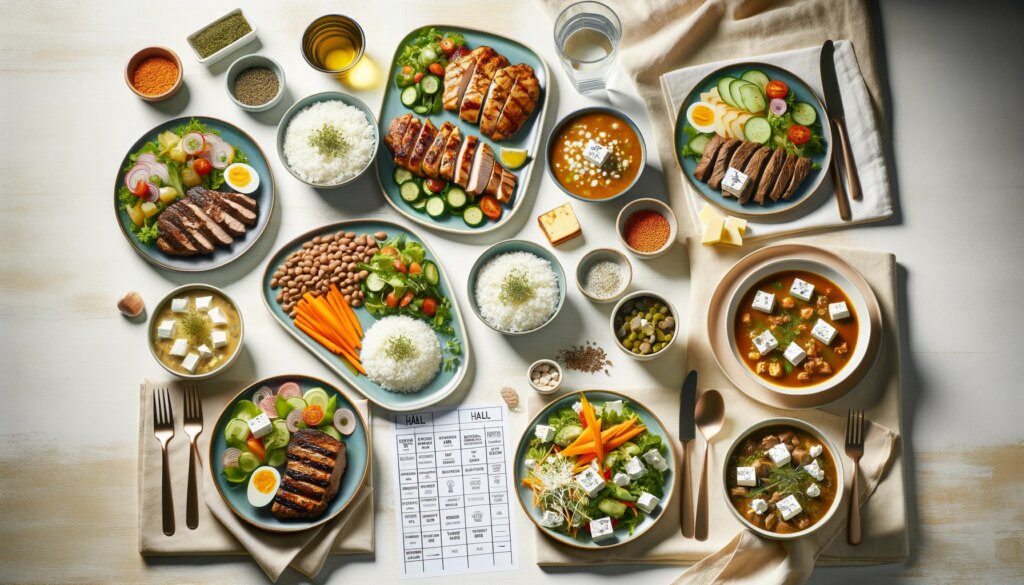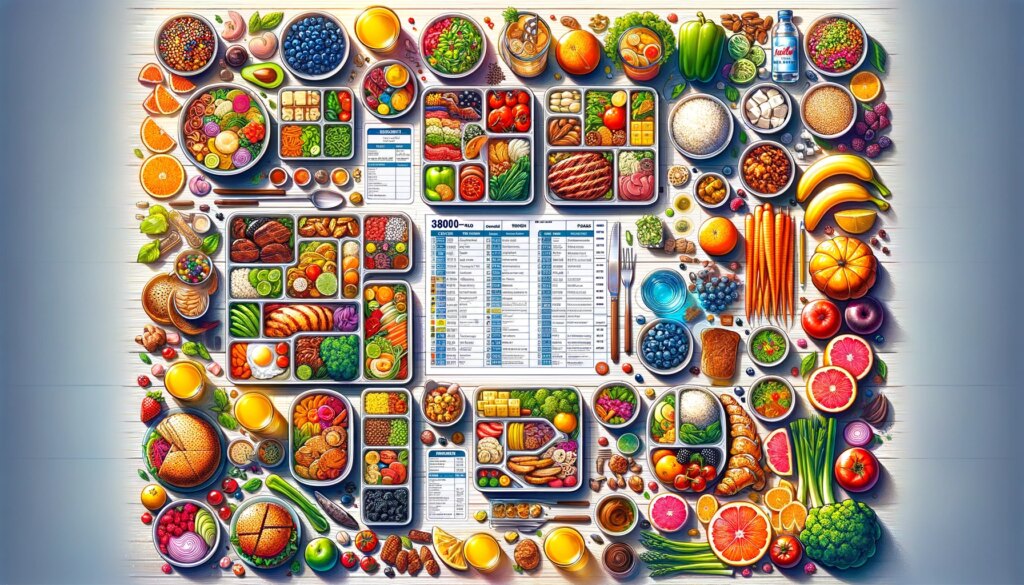Halal Meal Plans: A Guide to Wholesome, Faith-Aligned Eating
What is a Halal Meal?
Halal meals are more than just a dietary choice; they are a reflection of a deep-rooted cultural and religious ethos. The term ‘halal’ translates to ‘permissible’ in Arabic, and in the context of food, it signifies adherence to Islamic dietary laws as outlined in the Quran. These laws dictate not only the types of foods that are acceptable but also the methods of preparation and processing. At the core of halal meals is the emphasis on cleanliness, health, and ethical treatment of animals. Foods such as pork and alcohol are strictly prohibited, and meat must come from animals that have been humanely slaughtered in the name of Allah.
Halal Meal Replacement Shakes
In today’s fast-paced world, maintaining a halal diet can be challenging, especially for those always on the go. This is where halal meal replacement shakes come in as a convenient and nutritious solution. These shakes are designed to provide a balanced mix of proteins, carbohydrates, vitamins, and minerals, conforming to halal standards. They are an excellent alternative for individuals seeking a quick meal that aligns with their dietary and religious principles. Manufacturers ensure that the ingredients used are free from any non-halal substances and that the production process is contaminant-free.
Halal Diet Meals
Halal diet meals are not just about religious compliance but also about embracing a holistic approach to health. These meals are typically rich in fruits, vegetables, grains, halal meats, and dairy, ensuring a well-rounded intake of essential nutrients. The diet emphasizes the consumption of whole, unprocessed foods, reflecting a shift towards more organic and ethically sourced ingredients. Meal planning under a halal diet involves mindful selection of ingredients and cooking methods that retain nutritional value while respecting Islamic dietary laws.
halal meal plans offer a way to stay true to religious commitments while enjoying a diverse, nutritious, and delicious diet. They cater not just to the body’s physical needs but also to spiritual wellbeing, making them a comprehensive dietary choice for millions worldwide.
Creating a halal meal plan involves selecting foods that are permissible under Islamic dietary guidelines while ensuring nutritional balance, variety, and taste. Here’s a detailed guide to crafting a comprehensive halal meal plan:
Understanding Halal Principles
- Halal Foods: These are foods allowed under Islamic law. They must not contain pork or its by-products, alcohol, or any form of blood. Animals must be slaughtered in a specific way.
- Haram Foods: These are forbidden and include pork, alcohol, carnivorous animals, and improperly slaughtered animals.
- Doubtful Ingredients: Always check for hidden ingredients that may not be halal, like gelatin or certain emulsifiers.
Nutritional Balance
- Macronutrients: Ensure a balance of proteins, carbohydrates, and fats. Halal meats are a great source of protein. Include whole grains and legumes for carbohydrates, and nuts, seeds, and avocados for healthy fats.
- Micronutrients: Include a variety of fruits and vegetables to get the necessary vitamins and minerals.
Meal Planning
Breakfast Ideas:
- Halal egg and vegetable omelette.
- Whole grain bread with avocado and halal turkey slices.
- Oatmeal with nuts, honey, and fresh fruits.
Lunch Ideas:
- Grilled halal chicken breast with quinoa and a mixed green salad.
- Lentil soup with whole wheat pita bread.
- Halal beef stir-fry with vegetables and brown rice.
Dinner Ideas:
- Baked halal salmon with steamed broccoli and sweet potato.
- Vegetable and chickpea curry with basmati rice.
- Halal lamb stew with root vegetables and whole grain rolls.
Snacks:
- Fresh fruits, nuts, and seeds.
- Yogurt with granola and berries.
- Hummus with carrot and cucumber sticks.
Special Considerations
- Seasonal and Fresh: Choose seasonal fruits and vegetables for freshness and nutritional value.
- Portion Control: Be mindful of portion sizes to maintain a healthy weight.
- Hydration: Drink plenty of water throughout the day.
- Fasting: During Ramadan, suhoor and iftar meals need to be carefully planned to ensure all nutritional needs are met.
Sample One-Day Meal Plan
- Breakfast: Scrambled eggs with spinach, whole grain toast, and a cup of milk.
- Lunch: Grilled halal chicken salad with mixed greens, tomatoes, cucumbers, and a vinaigrette dressing.
- Dinner: Baked halal fish with lemon, served with quinoa and steamed green beans.
- Snacks: A handful of almonds and a piece of fruit.
Tips for Success
- Meal Prep: Prepare meals in advance to save time and ensure you have healthy options readily available.
- Variety: Rotate different foods to avoid monotony and ensure a range of nutrients.
- Moderation: Enjoy all foods in moderation, including sweets and treats.
Resources
- Look for halal certification labels when shopping.
- Use halal food guides and apps for assistance.
- Consult with a nutritionist for personalized advice, especially if there are specific dietary needs or health concerns.
By following these guidelines, you can create a nutritious, balanced, and halal meal plan that caters to your health and dietary preferences.
It seems you’re requesting a detailed written piece on a specific topic. However, I need to know the subject you’re interested in. Please provide the topic or subject matter you would like the content to be focused on, and I’ll be able to generate a comprehensive and detailed write-up for you.

